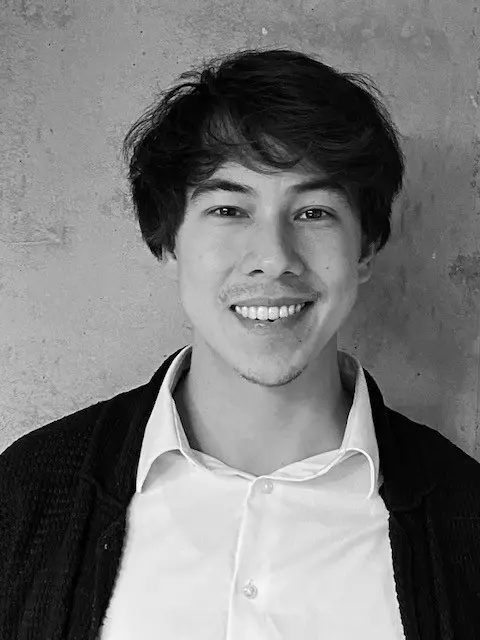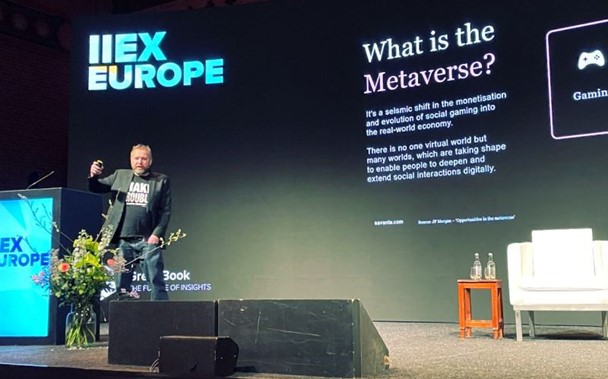
Playing to people’s strengths, getting people to do what they like doing, is how you create a team that’s greater than the sum of its parts.
About the series
I have always been interested in the stories of individuals.
An avid reader of biographies, listener of Ted Talks, and scourer of Wikipedia pages, I love learning about how people have gotten to where they are and what it is that makes them tick.
In this blog series we speak with Savanta’s leaders to figure out how they’ve shaped the unique culture at Savanta, what it is that makes them tick and, hopefully, to glean some pearls of wisdom which we can all incorporate into our professional lives.
My first interview is with Dr. Nick Baker, Chief Research Officer at Savanta.
A leader who wears many hats, Nick is one of Savanta’s resident problem solvers. He is motivated by the desire to create genuine impact and does this by harnessing the power of collaboration. A researcher with deep expertise, Nick excels at helping our clients drive predictive performance improvement and clear commercial performance gains through the application of commercially focused research…
What do you do at Savanta and how have you gotten here?
Nick: Well, here’s a big question… So, my job is Chief Research Officer, which says a lot and nothing in some respects. At a high level, I have a responsibility for trying to make the work that we do the best it can be across the entire business. That can range from design, sampling, general problem solving and dealing with things that are locked up for one reason or another and getting them back on track. I’m always asking how we can continue to push forward as a business because we should never be sitting still. If you sit still, you end up going backwards because other people aren’t sitting still.
And how did I get here? How far do you want me to go back… Well, I grew up in a coal mining village in North Nottinghamshire. I went to Birmingham University in 1992 where I stayed for 9 years. I did a German and Geography degree and then an MPhil and PhD in German Politics. I was nearly 28 when I started working full time, so I was quite late to the world of work. I first worked for a competitive intelligence company and then went into market research and haven’t looked back since!
What is it that motivates you to get out of bed every morning?
Nick: I am massively driven by a desire to improve things and a desire to have a genuine impact. I’m particularly driven by doing work that can genuinely help people. A lot of my work has been in the public sector where things can have a massive impact.
Is there a specific project you’ve worked on at Savanta that stands out as the one you’re most proud of?
Nick: I’ve done a huge amount of consultancy work for UK Power Networks, Severn Trent Water and Cadent, advising them on how to run their research programs as well as doing some of the research itself. That work has been fundamental in underpinning their business plan development and has been hugely rewarding on a professional level.

Dr. Nick Baker presenting at IIEX Europe 2023
What’s a skill you’re currently working on?
Nick: I’m trying to be more organized. Feedback I sometimes get is that I’m good at the difficult stuff but crap at some of the stuff that most people can do standing on their head, like turning up to meetings on time and things like that. It’s a consequence of how many plates I have spinning. It’s something I’m working on improving.
What energizes you at work?
Nick: Helping people, to be honest with you. And using my experience and all the crazy stuff that goes on in my head to supercharge the stuff we do.
What’s a mistake you’ve made in your career and what have you learnt from it?
Nick: One of the biggest learning journeys in my career has been to do with understanding the differences between types of people. Understanding that the way I perceive a particular situation, as well as my needs as an individual, are going to be vastly different from most other people’s. What I thrive on, a lot of other people hate.
For example, I love being chucked a challenge with no preparation and being asked what we should do. Lots of people would hate that. They’d like to be prepared and might want to think things through before feeling comfortable verbalizing their thoughts.
Whereas for me, I love being put on the spot, that’s the kind of situation I love. And if you put people who don’t love that way of working on the spot, in the middle of the room, in front of other people, you can literally paralyze them by accident. I now recognize the need to invest time in understanding how other people operate so that, as a collective, we can get the best out of each other.
Playing to people’s strengths, getting people to do what they like doing, is how you create a team that’s greater than the sum of its parts.
If you could give your 25-year-old self a piece of advice, what would that be?
Nick: Listen actively. And listen with the intention to hear it and internalize it before reacting to it. My old boss used to say “Nick, just because you’re not talking, doesn’t mean that you’re listening, most of the time you’re just waiting to talk”. And he was absolutely right. I do a lot of my thinking through verbalizing and so I can talk too much sometimes and, if I’m not careful, what that does is shut down other people by accident.
For you, what makes Savanta such a special place to work?
Nick: It’s not just the tuck shop you know… The tuck shop at Savanta seems to have developed a mythical status… In all seriousness, it’s really the culture of the business. It’s the openness and desire to listen and receive contributions from everybody. All businesses have a hierarchical dimension to them, but I think that we’ve got a very high degree of openness and meritocracy, which is what allows all this great stuff to happen.
